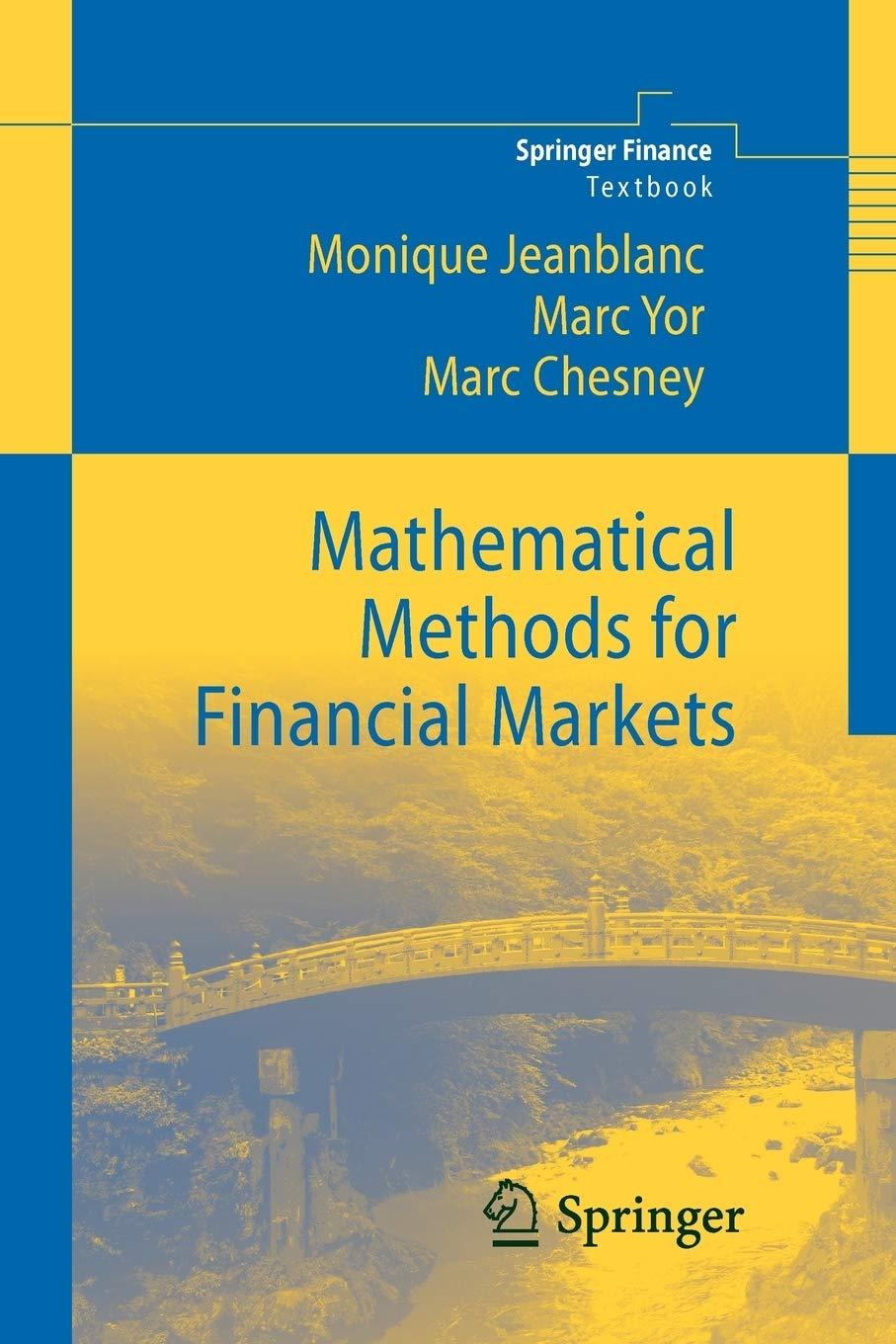Let (B_{t}^{(mu)}:=B_{t}+mu t) be a BM with drift (mu) and (M^{(mu)}) its running maximum, i.e., (M_{t}^{(mu)}=sup _{s
Question:
Let \(B_{t}^{(\mu)}:=B_{t}+\mu t\) be a BM with drift \(\mu\) and \(M^{(\mu)}\) its running maximum, i.e., \(M_{t}^{(\mu)}=\sup _{s \leq t} B_{s}^{(\mu)}\). Let \(R_{t}=M_{t}^{(\mu)}-B_{t}^{(\mu)}\) and \(T_{a}=T_{a}(R)=\inf \left\{t: R_{t} \geq a\right\}\).
1. Set \(\mu=0\). Prove that, for any \((\alpha, \beta)\) the process \[e^{-\alpha M_{t}-\frac{1}{2} \beta^{2} t}\left(\cosh \left(\beta\left(M_{t}-B_{t}\right)\right)+\frac{\alpha}{\beta} \sinh \left(\beta\left(M_{t}-B_{t}\right)\right)\right)\]
is a martingale. Deduce that \[\mathbb{E}\left(\exp \left(-\alpha M_{T_{a}}-\frac{1}{2} \beta^{2} T_{a}\right)\right)=\beta(\beta \cosh \beta a+\alpha \sinh \beta a)^{-1}:=\varphi(\alpha, \beta ;a) .\]
2. For any \(\mu\), prove that \[\mathbb{E}\left(\exp \left(-\alpha M_{T_{a}}^{(\mu)}-\frac{1}{2} \beta^{2} T_{a}\right)\right)=e^{-\mu a} \varphi\left(\alpha_{\mu}, \beta_{\mu} ; a\right)\]
where \(\alpha_{\mu}=\alpha-\mu, \beta_{\mu}=\sqrt{\beta^{2}+\mu^{2}}\).
Step by Step Answer:

Mathematical Methods For Financial Markets
ISBN: 9781447125242
1st Edition
Authors: Monique Jeanblanc, Marc Yor, Marc Chesney





